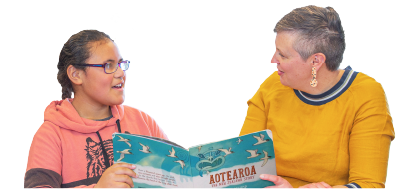Tapasā framework
Tapasā framework
The Tapasā framework is designed to guide and support you as you teach and lead Pacific learners, to strengthen your Pacific cultural knowledge, and offer a deeper understanding of Pacific worldviews.
You can, in turn, consider and integrate this knowledge into your teaching practices to enhance learning outcomes for Pacific learners.
The structure of the framework allows you to identify your current knowledge base about Pacific pedagogies and to recognise areas that can be strengthened across three specific competencies (ngā turu).
- Turu 1: Identities, languages and cultures
- Turu 2: Collaborative and respectful relationships and professional behaviours
- Turu 3: Effective pedagogies for Pacific learners
Each turu (competency) is divided into the four stages of teachers’ learning journeys and uses a progressive range of indicators, relating to cultural responsiveness, that guide you through practices that will enhance the achievements of Pacific learners. The four stages are student teacher, beginning teacher, experienced teacher, and leader.
Tapasā lists indicators that describe the minimum expectations for each stage of your teaching journey. Within some of the competency indicators, you may have cultural knowledge of Pacific pedagogies to a deeper level than is expected at each stage. Within your teaching setting you may be recognised as a leader within this competency and can therefore support and guide colleagues to develop and strengthen their knowledge and competence. Tapasā also includes a selection of scenarios and case studies to enable you to explore authentic examples of practice and to develop meaningful understandings of your own practices.
Over time you may transform your thinking, practices, and approaches by responding to each indicator and strengthening your cultural competence. The competency indicators are linked to the Code of Professional Responsibility, Standards for the Teaching Profession, and Tātaiako.




